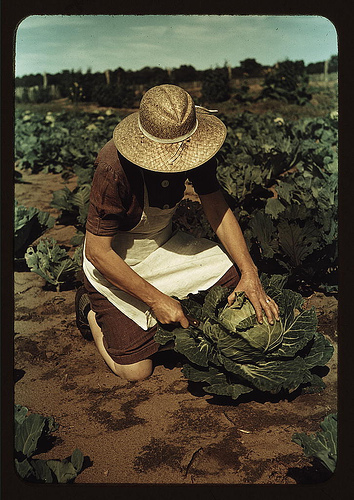climate and agriculture in the USA
Everybody loves a farmer, judging by the popularity of this year’s hit Super Bowl ad about the virtues of those who coax food from dirt. And yet nobody wants to be one, with less than 1 percent of the population claiming it as an occupation.
But somewhere among the 315 million Americans is a farmer who is (rarer still) a Democrat willing to serve President Obama. Should this person be found, he or she should be put in charge of the daunting task of convincing food producers that nothing imperils their future more than climate change.
I realize that summoning images of wilted wheat, lizard-skin ground and scrawny cattle nosing through drought-ravaged forage just a few days after a major winter storm is not the most timely approach. Whenever it snows over a large portion of the country, climate change-deniers point to the blanket of white outside and cry “hoax!”
But with the announcement this week of the usual suspects of city-bred, East Coast, well-credentialed types to the cabinet-level team that Obama is assembling to fight climate change, it’s time to consider a farmer as a leader of that cause.
Farmers don’t care much for Obama, so why should he reach out to them? He lost the rural vote by almost 20 points. And among big farmers (I’m talking productivity here, not bib overall size), he lost by 50 points. No surprise. Farmers haven’t had anything nice to say about a Democrat since Franklin Roosevelt was touring cornfields in his open-air car.
The people who grow grain for breakfast cereal and raise pigs for prosciutto are also among the biggest deniers of the consensus scientific view that humans have altered the earth’s climate. While acknowledging that, yes, sir, the weather does appear to be changing for the worse, most farmers don’t think it is human-caused, according to several polls. You’d have to survey the leading talk-radio hosts to find a higher percentage of disbelievers of the obvious.
At first glance, this makes no sense, because farmers have the most to lose in a world of weather havoc. Droughts, floods, searing high temperatures and freakish storms that now appear with regularity pose more of a threat to global food supply than the whims of the market. Weeds, pests and fungi — agricultural nightmares in a bundle — thrive under warmer temperatures and increased carbon dioxide levels. Heat waves are livestock killers, increasing the prevalence of parasites and diseases.
Read the rest of the article here.


